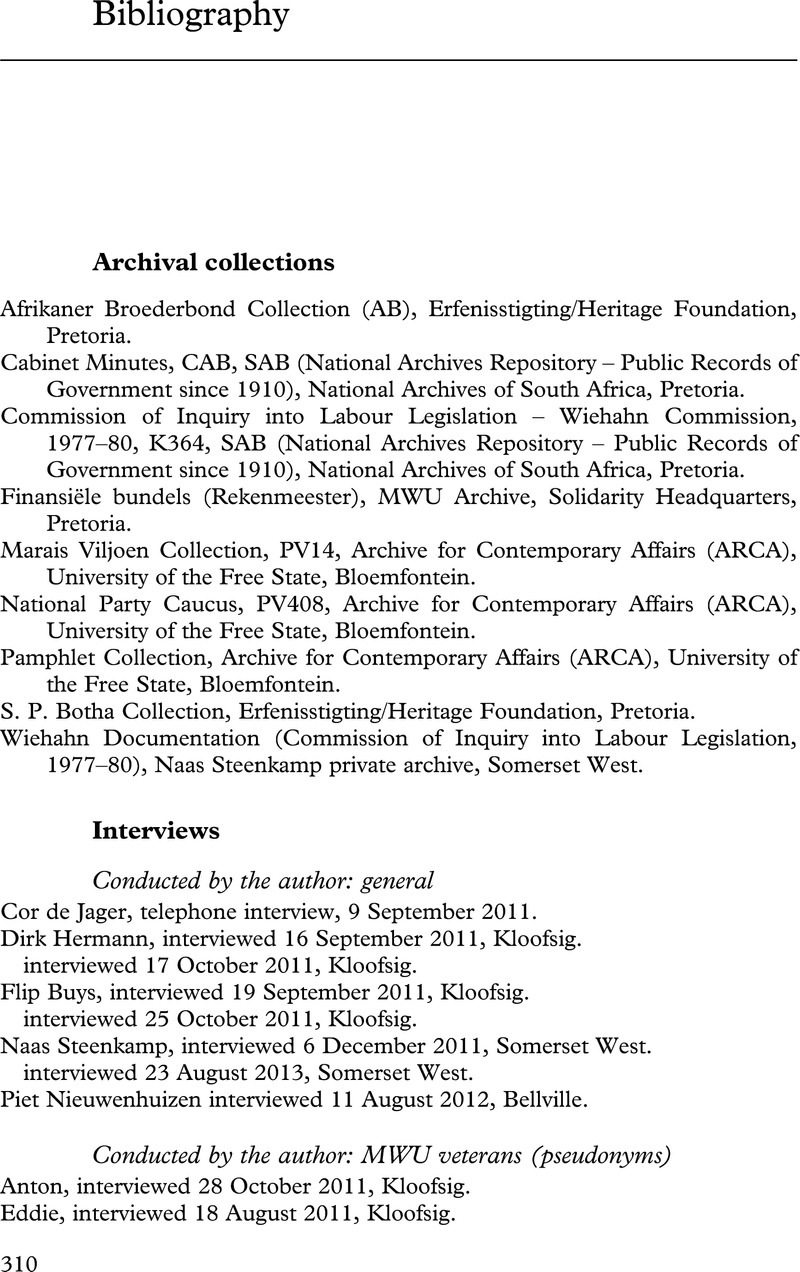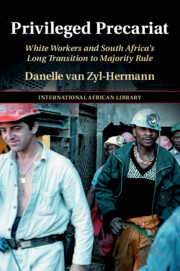Book contents
- Privileged Precariat
- The International African Library
- Privileged Precariat
- Copyright page
- Dedication
- Contents
- Table and figures
- Acknowledgements
- Abbreviations and acronyms
- Introduction
- Part I White workers and the racial state
- Part II White workers and civil society mobilisation
- Bibliography
- General titles
- Newspapers and online sources
- Index
- Series page
- References
General titles
Published online by Cambridge University Press: 17 April 2021
- Privileged Precariat
- The International African Library
- Privileged Precariat
- Copyright page
- Dedication
- Contents
- Table and figures
- Acknowledgements
- Abbreviations and acronyms
- Introduction
- Part I White workers and the racial state
- Part II White workers and civil society mobilisation
- Bibliography
- General titles
- Newspapers and online sources
- Index
- Series page
- References
Summary

- Type
- Chapter
- Information
- Privileged PrecariatWhite Workers and South Africa's Long Transition to Majority Rule, pp. 311 - 326Publisher: Cambridge University PressPrint publication year: 2021



